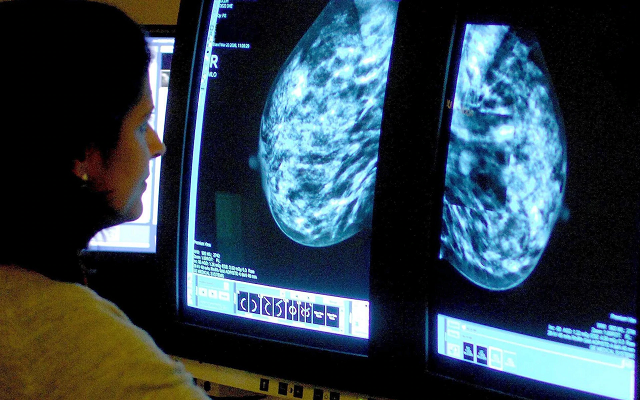October is globally recognised as Breast Cancer Awareness Month, a time dedicated to raising awareness about the most common cancer affecting women worldwide.
Breast cancer remains a leading cause of death among women in Nigeria, and lack of awareness, combined with stigma, contributes to late diagnosis and poor survival rates.
This month, health experts and organisations across the country are intensifying efforts to educate women on early detection, prevention, and the importance of regular check-ups.
In Nigeria, the event has become more urgent as the country contend with the rising breast cancer cases amidst growing concerns about limited access to early detection and treatment facilities.
Breast Cancer in Nigeria and Statistics
According to a 2024 report by the World Health Organization (WHO), breast cancer accounts for over 100,000 cases in Nigeria annually, with more than 40,000 deaths reported.
It is the most diagnosed cancer among Nigerian women, accounting for 23% of all cancer cases. Shockingly, over 70% of Nigerian breast cancer cases are diagnosed at advanced stages, significantly lowering survival chances.
Globally, WHO estimates show that there were over 2.3 million new cases of breast cancer in 2024, with about 685,000 deaths. The five-year survival rate for women diagnosed with early-stage breast cancer is around 90%, but in developing countries like Nigeria, this figure drops drastically to about 40%, due to late-stage diagnoses.
Causes and Risk Factors
Breast cancer occurs when cells in the breast tissue grow abnormally and uncontrollably. While the exact cause of breast cancer remains unclear, several factors increase a woman’s risk of developing the disease. These include:
Age: Women over 40 are more likely to develop breast cancer.
Family history: Having close relatives with breast cancer increases the risk.
Genetic mutations: Inherited mutations in genes like BRCA1 and BRCA2 elevate risk levels.
Lifestyle factors: Smoking, alcohol consumption, poor diet, and lack of physical activity contribute to increased risk.
Hormonal factors: Prolonged exposure to estrogen, either through early menstruation, late menopause, or hormone replacement therapy, increases breast cancer susceptibility.
In Nigeria, socio-economic factors like limited healthcare access, cultural beliefs, and inadequate health education often exacerbate the risk, leading to late detection.
Early Detection: The Key to Saving Lives
One of the most important messages this Breast Cancer Awareness Month is the need for early detection. Early diagnosis significantly increases the chances of successful treatment and survival.
Health professionals recommend the following steps for women in Nigeria to stay vigilant and proactive:
Regular Breast Self-Examinations (BSE): Women should conduct monthly self-examinations to detect any unusual lumps or changes. This simple, cost-free method helps women become familiar with their breast tissue and identify abnormalities early.
Clinical Breast Examinations (CBE): For women over 40, it is essential to have clinical breast examinations at least once a year. This can be done during routine medical check-ups.
Mammograms: A mammogram is a key tool in detecting breast cancer early. Women over the age of 40 are advised to undergo annual mammograms, while those with a family history of breast cancer should consult their doctors about starting earlier.
Breast Cancer Prevention Tips: Staying Safe
While breast cancer cannot always be prevented, certain lifestyle choices can help reduce the risk:
Maintain a Healthy Weight: Being overweight, especially after menopause, increases breast cancer risk. A balanced diet with plenty of fruits, vegetables, and whole grains can help.
Exercise Regularly: Physical activity can lower breast cancer risk by keeping hormone levels in balance. Experts recommend at least 30 minutes of exercise most days of the week.
Limit Alcohol and Avoid Smoking: Reducing alcohol intake and avoiding tobacco products can decrease the risk of breast cancer.
Breastfeed: Women who breastfeed for longer periods may lower their breast cancer risk.
What to Do if You Notice Symptoms
If you notice any of the following symptoms, it’s crucial to consult a healthcare provider immediately:
- A lump in the breast or underarm.
- Changes in breast size or shape.
- Nipple discharge, other than breast milk.
- Skin dimpling or puckering.
- Unexplained pain in the breast or nipple.
Early intervention offers the best chance of a positive outcome, so seeking medical attention at the first sign of abnormality is essential.
Support Systems and Access to Care in Nigeria
While awareness is critical, access to screening and treatment remains a significant challenge in Nigeria, particularly for women in rural areas. Organizations like the Breast Cancer Association of Nigeria (BRECAN), Project Pink Blue, and government-led initiatives such as the National Cancer Control Programme are working to expand access to cancer care across the country.
More private and public health institutions are now offering breast cancer screening services at subsidized rates, especially during Breast Cancer Awareness Month. However, there is still a need for more outreach, education, and affordable healthcare solutions to address the growing cancer burden.
As Breast Cancer Awareness Month continues through October, women are encouraged to prioritise their health, stay informed, and participate in screening programs that could save their lives.










